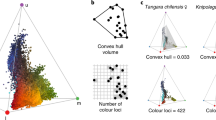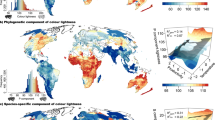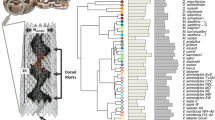Abstract
I AM sure that B. P. U. would not willingly misrepresent the opinions of those with whom he disagrees, yet he has done so when he refers to the existence of a common belief “that anything found in a bird's stomach would be in an unrecognisable state”1. I do not know of any naturalist who holds this opinion. B. P. U. has apparently extended into this sweeping statement the conclusion that the remains of butterflies eaten by birds soon become unrecognisable as Rhopalocera, except with the aid of the microscope. The history of this conclusion is interesting. In W. L. McAtee's earlier paper, “The Experimental Method of Testing the Efficiency of Warning and Cryptic Coloration in Protecting Animals from their Enemies”,2 the following statement appears:
This is a preview of subscription content, access via your institution
Access options
Subscribe to this journal
Receive 51 print issues and online access
$199.00 per year
only $3.90 per issue
Buy this article
- Purchase on Springer Link
- Instant access to full article PDF
Prices may be subject to local taxes which are calculated during checkout
Similar content being viewed by others
References
NATURE, July 9, 1932, p. 66.
Proc. Acad. Nat. Sci., Philadelphia, June 1912, p. 281.
Smithsonian Miscellaneous Collections, vol. 85, No. 7, p. 201. Washington, 1932.
Author information
Authors and Affiliations
Rights and permissions
About this article
Cite this article
POULTON, E. ‘Protective’ Adaptations of Animals. Nature 130, 202–203 (1932). https://doi.org/10.1038/130202a0
Issue Date:
DOI: https://doi.org/10.1038/130202a0
Comments
By submitting a comment you agree to abide by our Terms and Community Guidelines. If you find something abusive or that does not comply with our terms or guidelines please flag it as inappropriate.



